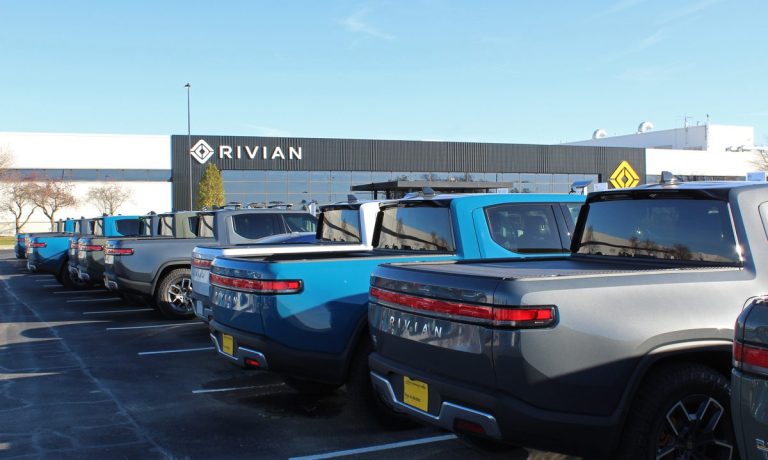Rivian Says Supply Chain Challenges Have Halved its Production Capacity

Electric vehicle manufacturer Rivian Automotive says that if it weren’t for the global supply chain constraints, it could be producing 50,000 vehicles in 2022. Instead, due to those challenges, it expects to produce 25,000 vehicles this year.
Production is being limited by a shortage of semiconductors, wiring harnesses and printed circuit boards, executives said during the company’s quarterly earnings call held Thursday (March 10).
“We are no doubt experiencing one of the most challenging supply chain environments the automotive industry has ever seen,” Rivian Automotive CEO RJ Scaringe said during the call.
Production Constrained by Component Shortages
Because of the global shortage of semiconductors, the manufacturers of those components are allocating them to customers based on their previous year’s demand, Scaringe said. Because Rivian is a new manufacturer, that limits the number it can get.
The supply of the other components is being limited by contract manufacturers’ labor problems, which are often caused by COVID-19.
“We’re working closely with any of these constrained suppliers to identify component challenges early so that we can support the supplier ramp and develop alternative solutions if needed,” Scaringe said.
A Price Increase Reversed for Those Who Preordered
In the hours before the call, Bloomberg reported that Rivian Automotive had lost $117 billion in market value since its peak four months ago, and four analysts had lowered their price targets. The report attributed this “$117 billion wipeout” to the auto industry-wide supply chain problems and Rivian Automotive’s reversal of an attempt to increase the price of vehicles that had been preordered.
In a presentation released in conjunction with the earnings call, Rivian Automotive said it had changed the pricing after rolling out a new propulsion system and battery pack. The company added that after doing so, it learned that customers who had preordered viewed their price as locked, so it quickly decided to honor the original price for those customers.
“Our relationship with customers is the most important aspect of what we’re building, and we believe our early customers are critical for establishing the brand foundation needed to support many millions of sales across our future vehicle portfolio,” Scaringe said during the call.
The Wall Street Journal reported March 8 that a shareholder is suing the company, alleging it had misled investors about the price it would eventually have to charge for its vehicles.
First Over-the-Air Software Update Delivered
In its presentation, Rivian Automotive reported that it had about 83,000 net preorders for its R1 pickup trucks and sport-utility vehicles and a 100,000 initial order from Amazon for its EDV delivery van.
Since the start of product and as of March 8, the company has produced 2,425 vehicles. The vehicles that are already in operation have received their first over-the-air software update, the company added.
For commercial customers, Rivian Automotive introduced a digital fleet management solution called FleetOS in 2021. This will be fitted to the EDV delivery vans, and Rivian Automotive currently has some of those vehicles deployed as part of a pilot program with Amazon.
Scaringe said during the call that production of the EDV and deployment of the vehicle by Amazon will start at a more significant scale in the second quarter of this hear.
“We are in a unique position to establish significant last-mile market share through our Amazon partnership and have the opportunity to capitalize on software and services through FleetOS,” Scaringe said.